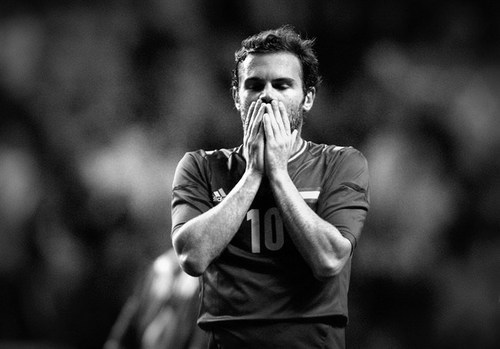Disrupting Accepted Narratives: On Spain’s Olympics and Selective Memory
Disrupting Accepted Narratives: On Spain’s Olympics and Selective Memory


By Jordan Brown
Spain’s summer tournaments are over, with the results being a glorious and historic victory, and a quietly disgraceful defeat. For all the glowing press that came out of Spain’s record-setting Euro 2012 performance, there is a comparative hill of silence with regards to their Olympic stumble. Sources that can usually be trusted to have something to say about such a story have been moot, both online and in print.
Michael Cox’s Zonal-Marking seems to be on hiatus after the Euros—offering us no autopsy of the exit, the usually insightful Sid Lowe only wrote an early Olympics piece on De Gea’s expectations for the tournament (pre-ignominy), but curiously—nothing since. No feature on the Football Ramble, nothing but match recaps on Soccernet, and in some cosmic coincidence Spanishfootball.info is down for maintenance. Now these may not be everyone’s personal sources for football coverage, but they’re on my daily round, so to find no real response to Spain’s poor display was surprising. Why aren’t we talking about this?
In the era of Twitter and Facebook—one of global immediacy—our culture now scrutinizes every molecule of every story that passes through the zeitgeist. We leave no vacuum, no room for myth. Politicians used to be able to build cults of personality which were shielded by public distance, athletes could become living totems of human aspiration, all because we really knew less information about them on a daily basis. This is no longer true, information is a constant stream, and with social media our public figures are seemingly obliged to offer themselves up to us on a daily basis. The effect is that the space and distance is gone—they are more human and we are less kind.
So it is that Spain have done something extraordinary in our time—their continued success has built a foundation for myth, each major triumph a levee to ward against any rising tide of doubt or criticism. The talk of this young Spanish Olympic side was that they weren’t merely talented, but were an honest continuation of Spain’s ‘Golden Generation’. It seemed a fair statement to make—players like De Gea, Munian, Jordi Alba, and Javi Martinez are all true professionals, stars at their clubs, and performers at the highest level. Yet they leave the London games at the bottom of their group, having conceded two goals and scoring none.
Where normally in our time this would have been a ripe situation to question the efficacy of Spain’s possession football system, or raise omens about the ‘end of an era’, all is quiet in those regards. Believe me, I went looking for hysterics and found none. Even the bombast of Marca was reigned in. Pablo Egea’s piece for Wednesday’s edition was promisingly titled, “Final a la Pesadilla de los Juegos,” or ‘End of the Nightmare of the Games’. Egea even ventured to call their Olympic performance, “[…]one of the great disappointments for our football in recent years.” It is his closing though that is so indicative of the strength of Spanish football’s current mythos, “Thus, looking ahead, we analyze the mistakes and keep working to return to the path of a victory that will come through these young players who have enough quality to give us joy.” Such restraint and positivity after Spain’s exit, from Marca no less, proves it—we have all embraced the narrative.
The great majority of Spain’s talented World Cup and double Euro winning sides will be in Brazil for the 2014 finals. A win there will surely cement the legend that Spain has been building as the greatest national side of all time. This Olympic defeat, while notably poor for such a talented squad, has fallen wide into the periphery of football’s gaze, which is squarely focused on this next major trophy. The only reason this Olympic run-out is notable, is for being forgiven. We all let it pass by, only acknowledging the moment to weigh it as an outlier against 2008, 2010, and the earlier summer triumph. Now, days later it is relegated, as much of modern history is, to the Google search, the archived cache, the armies of observations just like this. All of it present, but out of sight.
This piece was written by Jordan Brown. You can follow him on Twitter here. Comments below please.







